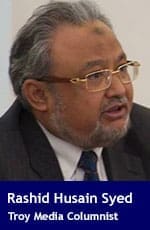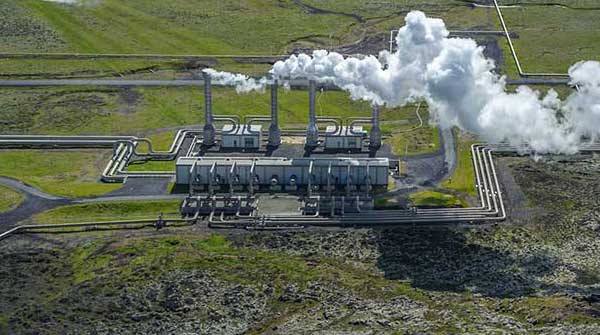Energy giants argue for a more realistic transition away from fossil fuels
 A fundamental debate is on within the energy fraternity, and the stakes couldn’t be higher.
A fundamental debate is on within the energy fraternity, and the stakes couldn’t be higher.
As environmental advocates and some governmental bodies sound the alarm about the urgent need to transition away from fossil fuels, cautioning about a looming environmental catastrophe, industry leaders are warning that the journey to net zero must be measured and incremental. They contend that a hasty pursuit of climate targets could endanger the energy stability of billions worldwide.
The divide was evident at the recently concluded World Petroleum Congress (WPC) in Calgary, attended by oil ministers and executives from global majors, where the issue of a global transition to cleaner energy was literally under the hammer.
 |
| Related Stories |
| Experts warn of US$100 per barrel oil by year-end
|
| Why a balanced approach to energy transition is crucial for our future
|
| Tackling the energy transition a colossal challenge for Canada
|
The Congress took place in the wake of the latest projections of the Paris-based International Energy Agency (IEA), which maintains that global oil demand could peak before 2030 due to the growth of electric vehicles and solar energy around the world, especially in China.
However, Saudi Arabia, which sent the largest delegation to the WPC, warned of the consequences of ditching oil too quickly. It stressed the need for a realistic approach to the energy transition, along with more investment in oil and gas. The Saudi Oil Minister, Prince Abdulaziz bin Salman Abdulaziz, in his address, challenged the IEA’s predictions, accusing them of veering into political advocacy instead of objective forecasting, telling delegates that “(the IEA has) moved from being a forecaster and assessor of the market to one practicing political advocacy.”
He also questioned the accuracy of their past predictions and emphasized the need for a holistic approach to energy transition that considers economic and security factors. “None of the things that they were warning about have happened. And name me any time that their forecasts were as accurate as one would have hoped for,” he said.
“If we really want to be faithful to the idea that we will be transitioning, we also have to make sure that transitioning happens whereby you end up attending to energy security, ensuring that energy is still affordable and does not act as an impediment to economic prosperity and growth,” he emphasized. “And if you don’t do all of the above, I’m sorry, but I don’t think you could attend to climate change issues.”
Amin Nasser, the CEO of Saudi state-controlled oil behemoth Aramco, also weighed in, casting doubt on the concept of peak oil demand and highlighting concerns in the current energy transition plans. The notion of peak oil demand, he said, is “wilting under scrutiny,” noting that “many shortcomings in the current transition approach that can no longer be ignored.”
“Despite a concerted effort to move to alternatives, global coal consumption is at record levels … with demand still robust,” Nasser added while accepting an industry leadership award at the conference. He also stressed that carbon capture “can no longer be the bridesmaid of transition.”
Darren Woods, chair and CEO of ExxonMobil, made a similar point. “There seems to be somewhat wishful thinking that we’re gonna flip a switch and we’ll go from where we’re at today to where we’ll be tomorrow,” Woods said. “If we don’t maintain some level of investment in the industry, you end up running short of supply, which leads to high prices and some of the effects that Amin referenced,” Woods stressed.
Prince Salman took the opportunity to provide insights on OPEC+’s recent output cut decision, emphasizing that it was driven by global demand-supply dynamics and other global economic factors like uncertainties in Chinese demand and economic downturns in Europe.
The energy world is at a crossroads. The world needs fossil fuels. But at the same time, and given the climate change effects, it cannot be life as usual. The two ends need to meet at some mid-point.
Toronto-based Rashid Husain Syed is a highly-regarded analyst specializing in energy and politics, with a particular emphasis on the Middle East. Besides his contributions to both local and international newspapers, Rashid frequently lends his expertise as a speaker at global conferences. His insights on global energy matters have been sought after by organizations such as the Department of Energy in Washington and the International Energy Agency in Paris.
For interview requests, click here.
The opinions expressed by our columnists and contributors are theirs alone and do not inherently or expressly reflect the views of our publication.
© Troy Media
Troy Media is an editorial content provider to media outlets and its own hosted community news outlets across Canada.

